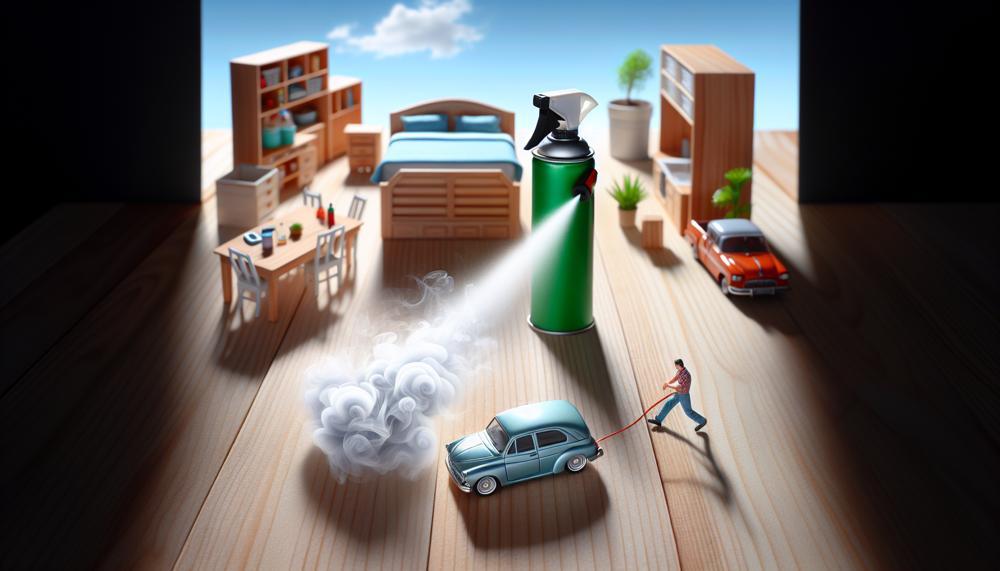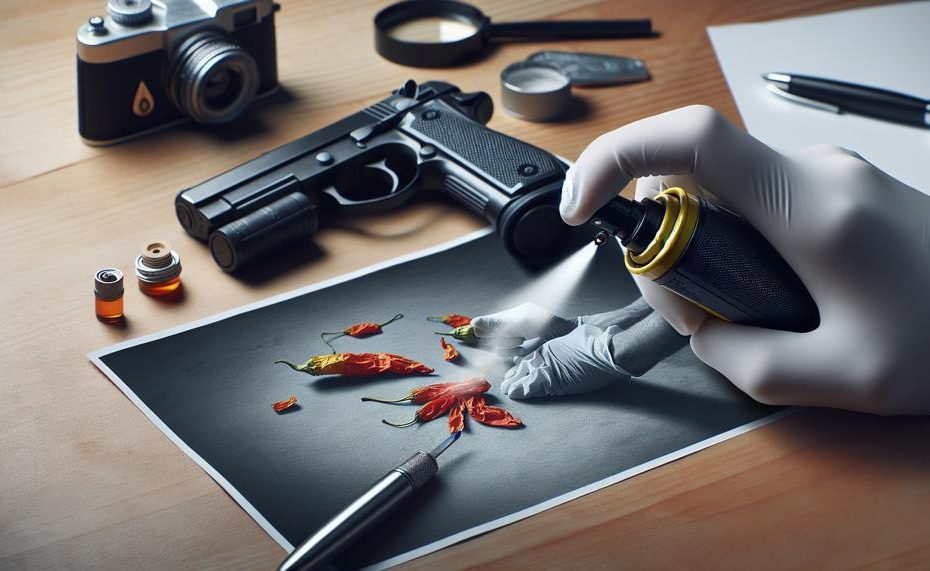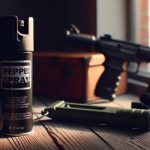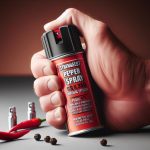Imagine walking into your home after a long day, only to be hit with a powerful and overwhelming smell of pepper spray.
Whether it’s from a recent self-defense encounter or an accidental discharge, this lingering odor can be not only unpleasant but also potentially harmful to your health. But don’t panic – we’ve got you covered with our ultimate guide on how to effectively remove pepper spray smell from your house.
In this blog post, we’ll delve into the science behind pepper spray and its persistent scent, as well as provide step-by-step methods for eliminating the smell.
Say goodbye to that pesky odor with our tried and tested techniques, including natural remedies and DIY solutions.
Get ready to welcome a fresh and clean home once again. Here’s what you can expect to learn:
- The composition of pepper spray and why its odor lingers
- Potential health risks associated with prolonged exposure to pepper spray residue
- Step-by-step methods for removing the smell from various surfaces like furniture, carpets, and walls
- Natural remedies and DIY solutions using everyday household items
- Tips for preventing future incidents and keeping your home smelling fresh at all times
Contents
What Causes A Pepper Smell In My House?
The causes of a lingering pepper smell in a home can vary, with some being more common than others.
One of the most common causes is the use of pepper spray, which contains potent chemicals that can easily spread and penetrate surfaces, leaving a strong smell in its wake.
Accidental discharge or leakage of pepper spray canisters can also lead to a strong pepper smell in a house.
Additionally, cross-contamination from items that have come into contact with pepper spray can transfer the scent and cause the smell to linger.
How To Identify A Cause
- Detect the smell: The first step is to identify the cause of the smell by recognizing if it is indeed that of pepper spray. Familiarize yourself with the distinct odor of pepper spray to easily identify it.
- Search for residue: Look for any visible traces of residue on surfaces or objects in your house, such as door handles, walls, and furniture. These could indicate recent use of pepper spray.
- Seek input from others: If you live with other people, ask them if they have been using pepper spray recently or know someone who has. This can help narrow down potential sources.
- Improve ventilation: Open windows and doors to allow fresh air to circulate and reduce the concentration of the irritant. This can also help lessen the effects of the pepper spray smell.
- Use a fan: Place a fan near an open window to help blow out the irritant smell. This will disperse the smell and improve air circulation.
- Take safety precautions: When investigating the source of the smell, wear gloves and avoid touching your face to prevent any potential irritation from the pepper spray.
- Seek professional assistance: If you are unable to locate the source or experience severe symptoms like difficulty breathing or burning in your eyes, seek help from a professional cleaning service or consult with a healthcare provider.
How To Remove A Pepper Smell In The House

Removing the pungent stench of pepper spray from a household can prove to be a daunting and unpleasant task. Pepper spray, or more commonly known as OC spray, is a popular self-defense tool that contains capsaicin – a chemical derived from chili peppers.
When used in an enclosed space like a house, it can leave behind a potent and long-lasting smell. To eliminate this odor, here are some effective and safe methods to follow:
- Boost ventilation: The primary step in getting rid of any persistent smell is to enhance the ventilation in your home. You can achieve this by opening windows and doors, allowing fresh air to circulate and dispel the lingering pepper spray scent.
- Use oil-free soap: To clean the pepper spray residue off walls and other surfaces, utilizing oil-free soap such as dishwashing liquid is recommended. Mix it with warm water and gently scrub the affected area before rinsing it off with cold water.
- Treat carpets and furniture: For carpets and furniture, make a concoction by combining a quart of 3% hydrogen peroxide, a quarter-cup of baking soda, and a teaspoon of liquid dish soap in a plastic container. Pour or spray this solution directly onto the affected areas and let it sit for at least 2 hours before blotting away any excess liquid. Then, allow it to air dry.
- Clean evaporator coils: In case your house has central air conditioning, the pepper spray smell may have traveled through the air ducts and settled on the evaporator coils. In such cases, cleaning them with a non-acid coil cleaner is advised or hiring a professional HVAC technician to do it for you.
- Deep clean surfaces: Apart from using soap solutions, giving surfaces a deep clean with vinegar or baking soda can also effectively neutralize the pepper smell. These natural ingredients possess strong deodorizing properties that can combat the odor.
- Regular home maintenance: To prevent a pepper spray smell from lingering in your household, regular home maintenance is crucial. This includes promptly cleaning up spills, keeping surfaces clean, and addressing any moisture-related issues that can promote the growth of mold or bacteria.
Conclusion
In conclusion, the lingering smell of pepper spray in your home can be a frustrating and unpleasant experience.
But fear not, with the right knowledge and techniques, you can effectively eliminate the pungent odor and restore a fresh and clean living space. By understanding the science behind pepper spray and recognizing potential health risks, you can take the necessary steps to remove it from your home.
And don’t forget to regularly maintain your home to prevent future incidents.





